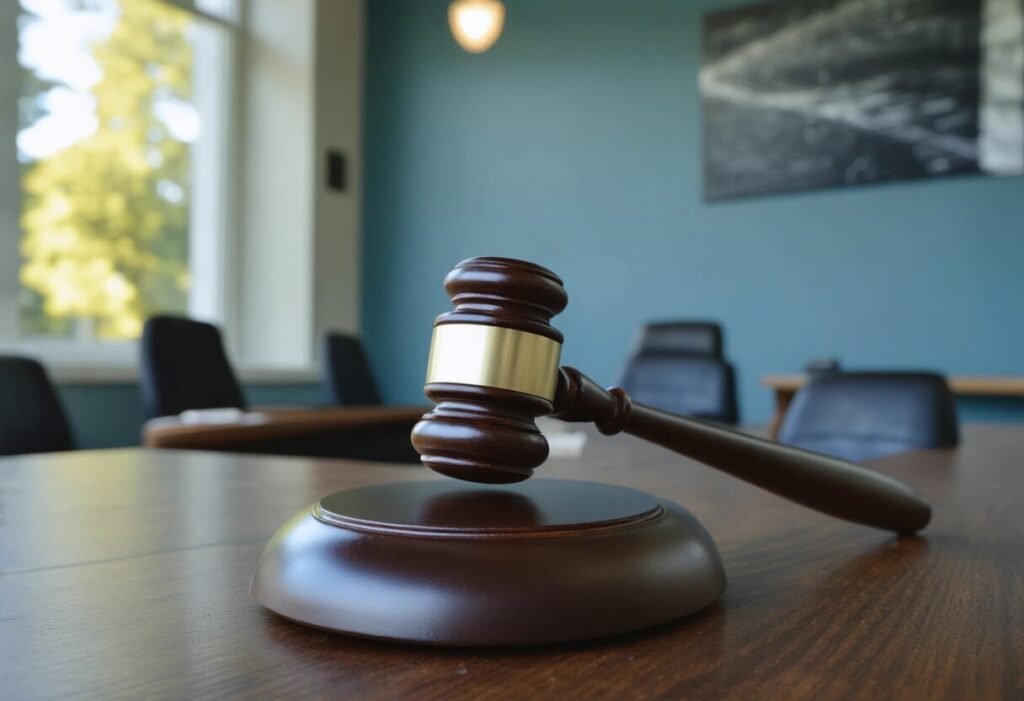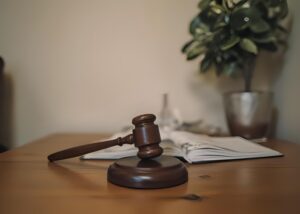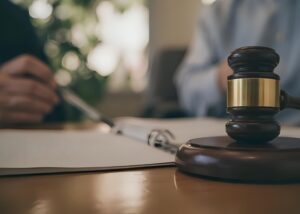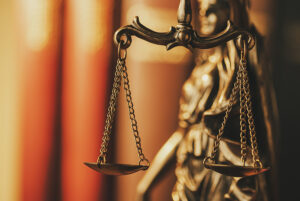TL;DR
Expert witnesses are essential in Georgia wrongful death cases, providing specialized knowledge that helps clarify complex evidence for the court. They offer insights into medical issues, accident details, and financial impacts, strengthening the case for families seeking justice and compensation.
Key Highlights
- Clarifying Complex Evidence: Experts explain technical details in understandable terms.
- Medical Insights: Provide detailed analysis of injuries and medical negligence.
- Accident Reconstruction: Recreate events to determine causes and responsibility.
- Financial Impact Assessment: Calculate lost wages and future earnings.
- Establishing Causation: Link actions to the wrongful death outcome.
- Enhancing Credibility: Strengthen the case with authoritative testimony.

In Georgia, wrongful death cases address the tragic loss of a loved one due to another’s negligence or wrongful actions. Each year, numerous families face the emotional and financial burdens of such losses, seeking justice through the legal system. According to recent statistics, wrongful death claims account for a significant number of lawsuits in the state, highlighting the critical need for expert assistance in these matters.
Georgia law, specifically O.C.G.A. § 51-14-33, outlines the framework for wrongful death claims, allowing survivors to pursue compensation for losses resulting from the deceased’s untimely death. These cases often involve complex legal and factual issues that require thorough examination to establish liability and determine appropriate damages.
In navigating the intricacies of wrongful death litigation, expert witnesses emerge as vital contributors. Their specialized knowledge provides clarity and depth to the evidence presented, ensuring that the court fully understands the nuances of each case. By bridging the gap between technical details and legal arguments, expert witnesses play a pivotal role in achieving fair and just outcomes for affected families.
Understanding Wrongful Death in Georgia
Wrongful death in Georgia occurs when an individual dies due to the negligence or intentional actions of another party. This legal action allows the deceased person’s survivors to seek compensation for their loss, covering both tangible and intangible damages.
Legal Framework
Under Georgia law, specifically O.C.G.A. § 51-14-33, wrongful death claims must demonstrate that the defendant owed a duty of care to the deceased, breached that duty, and directly caused the death through their actions or omissions. This framework ensures that only cases with clear evidence of negligence or wrongdoing proceed to compensation.
Common Causes
Wrongful death cases in Georgia commonly arise from various circumstances, including:
- Vehicle Accidents: Collisions caused by reckless driving or impaired motorists.
- Medical Malpractice: Errors in medical treatment leading to fatal outcomes.
- Workplace Incidents: Fatal accidents due to unsafe working conditions.
- Product Defects: Defective products causing fatal injuries.
- Premises Liability: Dangerous conditions on property leading to death.
Each of these scenarios involves unique challenges that often require specialized knowledge to effectively argue in court.
Impact on Families
The loss of a loved one has profound emotional and financial effects on families. Wrongful death claims aim to address these impacts by providing compensation for:
- Medical Expenses: Costs related to the deceased’s medical care prior to death.
- Funeral Costs: Expenses associated with burial or cremation.
- Lost Income: Income the deceased would have earned had they lived.
- Loss of Companionship: Emotional suffering and loss of support.
- Pain and Suffering: Non-economic damages resulting from the death.
Understanding these impacts is crucial for attorneys to build a compelling case for their clients. Need strong expert testimony? A wrongful death lawyer knows how to bring in the right voices.
The Importance of Expert Witnesses
Expert witnesses bring specialized knowledge that is essential in wrongful death cases. Their expertise helps clarify complex issues, making it easier for the court to understand the intricacies of the case.
Providing Specialized Knowledge
In wrongful death lawsuits, expert witnesses can cover areas such as:
- Medical Expertise: Determining cause of death and medical negligence.
- Accident Reconstruction: Recreating the events leading to the death.
- Financial Analysis: Calculating economic losses and future earnings.
- Psychological Impact: Assessing emotional and psychological damages.
Their insights provide a deeper understanding of the case, supporting the legal arguments with credible evidence.
Enhancing Credibility
The testimony of a respected expert can significantly enhance the credibility of a case. Their objective analysis and professional opinions lend authority to the claims being made, making the evidence more persuasive to the court.
Bridging the Gap
Expert witnesses translate complex technical information into understandable terms for judges and juries. This bridging role ensures that the legal team can present a clear and coherent case, focusing on the key issues without getting bogged down in technical jargon.
Types of Expert Witnesses in Wrongful Death Cases
Different wrongful death cases require various types of expert witnesses, each bringing a unique set of skills and knowledge to the table.
Medical Experts
Medical experts are often crucial in cases involving medical malpractice or health-related issues. They assess whether the medical care provided met the standard of care and if any negligence contributed to the death.
Accident Reconstruction Experts
These experts analyze the circumstances surrounding accidents to determine how they occurred. They use evidence from the scene, vehicle data, and other sources to recreate the events and identify any contributing factors.
Financial Experts
Financial experts evaluate the economic impact of the deceased’s death on their family. They calculate lost wages, future earning potential, and other financial losses, providing a clear picture of the economic damages involved. A skilled wrongful death attorney works with experts to build powerful cases.
Vocational Experts
Vocational experts assess the deceased’s career prospects and earning capacity. They help determine what the deceased might have earned had they not died, which is essential for calculating lost income and future financial needs.
Psychological Experts
Psychological experts evaluate the emotional and psychological impact of the death on the survivors. They provide testimony on suffering, loss of companionship, and other non-economic damages that are more subjective but equally important.
Forensic Experts
Forensic experts analyze physical evidence related to the death. They can provide insights into toxicology reports, pathology findings, and other forensic data to establish the cause and manner of death.
Selecting the Right Expert Witness
Choosing the appropriate expert witness is crucial for the success of a wrongful death case. The right expert can provide valuable insights and strengthen the overall argument.
Credentials and Experience
Experts should have relevant qualifications, certifications, and extensive experience in their field. Their background adds credibility to their testimony and ensures their opinions are well-founded.
Communication Skills
An effective expert witness must be able to communicate complex information clearly and concisely. Their ability to present their findings in an understandable way is vital for making the case persuasive to the court.
Availability and Reliability
Experts need to be available for consultations, depositions, and court appearances. Reliability in meeting deadlines and being consistent is essential to maintain the momentum of the legal proceedings.
Compatibility with Legal Team
The expert should work well with the legal team, understanding the case strategy and contributing constructively. A collaborative relationship ensures that the expert’s insights are effectively integrated into the case.
The Expert Witness Testimony Process
Involving an expert witness in a wrongful death case involves several key steps, each aimed at building a strong, evidence-based argument.
Initial Consultation
The legal team meets with potential expert witnesses to discuss the case details and evaluate the expert’s suitability. This step helps identify the most appropriate experts who can provide valuable insights based on their expertise.
Preparing the Expert Report
The expert witness compiles a detailed report outlining their findings, analysis, and conclusions related to the case. This report serves as a foundational document that supports the expert’s testimony during the trial.
Deposition and Testimony
During depositions, the expert is questioned under oath about their report and opinions. Effective cross-examination by the opposing counsel can test the expert’s credibility and the validity of their conclusions.
Courtroom Testimony
In court, the expert witness presents their findings, answering questions from both the legal teams and, if necessary, the judge. Their testimony helps clarify complex issues and supports the case’s key arguments.
Cross-Examination
Opposing counsel may challenge the expert’s methods, conclusions, or biases during cross-examination. A strong expert can withstand such scrutiny, reinforcing their role as a credible and reliable source of information.
Final Impact
The expert witness’s contributions are pivotal in shaping the court’s understanding of the case, influencing the ultimate verdict and the compensation awarded to the survivors.
Challenges and Considerations
Involving expert witnesses in wrongful death cases comes with its own set of challenges. Understanding these can help legal teams navigate potential obstacles effectively.
Cost Implications
Expert witnesses can be expensive, with fees for consultation, report preparation, and court appearances. Balancing the cost against the potential benefits is crucial for managing the case’s financial aspects.
Finding Unbiased Experts
Ensuring that the expert witness remains impartial is essential. Conflicts of interest or perceived biases can undermine the expert’s credibility and weaken the case’s foundation.
Managing Complex Information
Legal teams must work closely with expert witnesses to understand and present complex information coherently. Misinterpretation or miscommunication can lead to confusion and weaken the case’s persuasiveness.
Legal and Ethical Standards
Expert witnesses must adhere to strict legal and ethical guidelines, maintaining objectivity and integrity throughout the case. Violations can lead to disqualification and negatively impact the case’s outcome.
Time Constraints
Coordinating schedules for consultations, report writing, and court appearances can be challenging, especially in lengthy legal proceedings. Effective time management is crucial to ensure timely and consistent expert involvement.
Reliability of Evidence
The strength of the expert’s evidence can significantly influence the case’s outcome. Ensuring that their methodologies are sound and their findings are reliable is key to building a compelling legal argument.
Maximizing the Impact of Expert Witnesses
To fully leverage the benefits that expert witnesses bring to wrongful death cases, legal teams should adopt strategic approaches in their engagement and utilization.
Early Engagement
Involving expert witnesses early in the case prepares a solid foundation. Early insights can shape the case strategy and ensure that all necessary evidence is collected and analyzed from the start.
Thorough Preparation
Preparing the expert thoroughly for depositions and testimonies ensures they present their findings confidently. This includes reviewing reports, understanding key case points, and anticipating cross-examination questions.
Collaborative Approach
Working closely with expert witnesses fosters a deeper understanding of the case. Collaboration allows the legal team to integrate the expert’s insights seamlessly into their arguments, strengthening the overall presentation.
Continuous Communication
Maintaining open lines of communication with expert witnesses throughout the case ensures that any developments are promptly addressed. Regular updates and discussions help keep the case on track and address any emerging issues.
Leveraging Multiple Experts
Utilizing a range of expert witnesses can provide a comprehensive view of the case. Multiple perspectives enhance the depth of the evidence presented, covering all critical aspects of the wrongful death claim.
Strategic Testimony
Guiding expert witnesses to focus on the most pertinent aspects of their findings aligns their testimony with the case’s key arguments. Strategic emphasis ensures that the most impactful evidence is highlighted during the trial.
Conclusion
Expert witnesses play a vital role in Georgia wrongful death cases by clarifying complex issues and strengthening the overall legal strategy. Their insights can be the key to securing fair compensation and justice for grieving families. If you’re facing the loss of a loved one due to negligence, speak with a legal team that understands the value of expert testimony.
Not sure how expert witnesses help your case? Get a wrongful death lawyer who understands the strategy. A free case evaluation can help you take the first step toward closure and accountability.






